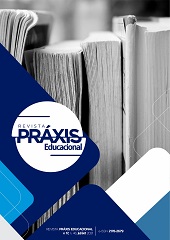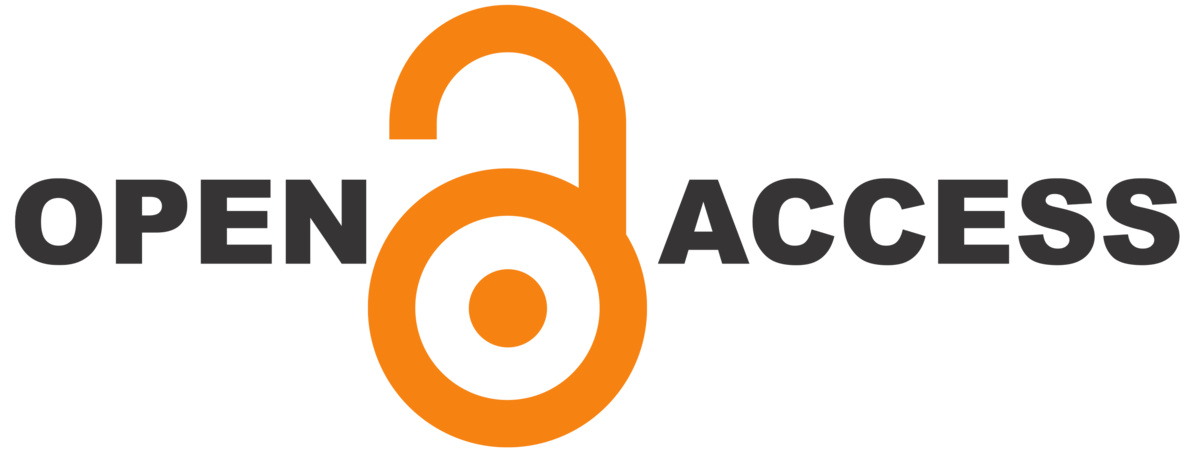Curricular and teacher education standardization: challenges of teacher education post BNCC
DOI:
https://doi.org/10.22481/praxisedu.v17i46.8915Keywords:
BNCC, Teacher Education, Public-Private PartnershipsAbstract
The article aims to analyze the curriculum standardization process imposed by the National Learning Standards -BNCC and its resulting curricular proposals for the initial teacher education courses. Many challenges are posed for post-BNCC teacher education projects, amplified by the pandemic situation that determined an advance in the use of technologies in education, remote education and the expansion of blended education. The sector of production of digital platforms and technologies has deeply entered the educational field in an intense way, taking advantage of the period of the Covid- 19 pandemic to expand in education. The text aims to demonstrate that teacher education policies in this context are local expressions of a global educational reform movement - GERM. The viral dissemination of these policies had a propitious environment in the pandemic context, given the absence of the State for public education, and its stimulation for the expansion of relations between the public and the private sector, which may greatly influence teacher education projects.
Downloads
References
ALBINO, Ângela C.A. e SILVA, Andreia. F. BNCC e BNC da formação de professores: repensando a formação por competências. Revista Retratos da Escola, Brasília, v. 13, n. 25, p. 137-153, jan./mai. 2019. https://doi.org/10.22420/rde.v13i25.966
AGUIAR, Márcia A. da S. e DOURADO, Luiz F. BNCC e formação de professores: concepções, tensões, atores e estratégias. Revista Retratos da Escola, Brasília, v. 13, n. 25, p. 33-37, jan./mai. 2019.
APPLE, Micahel W. Conhecimento oficial: a educação democrática numa era conservadora. Petrópolis: Vozes, 1997.
BACICH, Lilian.; TANZI NETO, Adolfo; TREVISANI, Fernando de M. (orgs.) Ensino híbrido - personalização e tecnologia na educação. Porto Alegre: Penso, 2015.
BALL, Stephen J. Novos Estados, nova governança e nova política educacional. In: Apple, M.W., Ball, S.J. e Gandin, L.A. (org.) Sociologia da Educação - análise internacional. Porto Alegre: Penso, p. 177-189, 2013.
BALL, Stephen J. Educação Global S.A.: Novas redes políticas e o imaginário neoliberal. Ponta Grossa: Editora UEPG, 2014.
BALL, Stephen J. Following policy: networks, network ethnography and education policy mobilities. Journal of Educational Policy, v. 31, n. 5, p. 1-18, 2016. DOI: https://dx.doi.org/10.1080/02680939.2015.1122232
BALL, Stephen J. and JUNEMANN, Carolina. Networks, new governance and education. Bristol: The Policy Press, 2012.
BALL, Stephen J.; JUNEMANN, Carolina, & SANTORI, Diego. Edu.Net – Globalisation and Education Policy Mobility. London: Routledge, 2017.
BIESTA, Gert. Why “what works” won’t work: Evidence-based practice and the democratic deficit in educational research. Educational Theory, V. 57, N.1, 2007.
CAETANO, Maria R.; MENDES, Valdelaine. Think tanks, redes e a atuação do empresariado na educação. Educar em Revista, v. 36, p. 1-17, 2020.
CASSIO, Fernando et al. Heterarquização do Estado e a expansão das fronteiras da privatização da educação em São Paulo. Educ. Soc., Campinas, v. 1, e241711, 2020. Epub Oct 30, 2020. <http://dx.doi.org/10.1590/es.241711>.
CHIZZOTTI, Antonio. A pesquisa educacional e o movimento “pesquisas científicas baseadas em evidências”. Práxis Educativa, Ponta Grossa, v. 10, n. 2, p. 329-342, jul./dez. 2015. DOI:10.5212/PraxEduc.v.10i2.0003.
COMAR, Sueli R. Avaliação no contexto do Laboratório Latino-americano de avaliação da qualidade da educação. Est. Aval. Educ., São Paulo, v. 28, n. 68, p. 572-598, maio/ago. 2017.
DOURADO, Luiz F. (2016). Formação de profissionais do magistério da educação básica: novas diretrizes e perspectivas. Comunicação & Educação, 21(1), 27-39. https://doi.org/10.11606/issn.2316-9125.v21i1p27-39
FERREIRA, Márcia S. A utilização do conhecimento científico: uma discussão sobre as pesquisas educacionais e a formulação de políticas. Práxis Educativa, Ponta Grossa, v.4, n.2, p.123-130, jul.-dez. 2009. Doi: http://dx.doi.org/10.5212/PraxEduc.v.4i2.123130
FONTDEVILA, Carla; VERGER, Antoni & AVELAR, Marina. The business of policy: a review of the corporate sector’s emerging strategies in the promotion of education reform. Critical Studies in Education, p.1-16, 2019. DOI: 10.1080/17508487.2019.1573749.
FREITAS, Luiz C. de. A Reforma Empresarial da educação: nova direita, velhas ideias. São Paulo: Expressão Popular, 2018.
HARVEY, David. Condição pós-moderna: uma pesquisa sobre as origens da mudança cultural. 5a. ed., São Paulo: Edições Loyola, 1992.
HARVEY, David. Neoliberalismo: história e implicações. São Paulo: Edições Loyola, 2008. HORN, Michael B. Blended - usando a inovação disruptiva para aprimorar a educação. Porto Alegre: Penso, 2015.
HYPOLITO, Álvaro M. Currículo e projeto político-pedagógico: implicações na gestão e no
trabalho docente. Cadernos de Educação (Brasília), v. XVIII, p. 11-26, 2014. HYPOLITO, Álvaro M. BNCC, Agenda Global e Formação Docente. RETRATOS DA ESCOLA, v. 13, p. 187-201, 2019.
HYPOLITO, Álvaro M.; JORGE, Tiago A. OCDE, PISA e Avaliação em Larga Escala no
Brasil: Algumas implicações. SISYPHUS - JOURNAL OF EDUCATION, v. 8, p. 10-27, 2020. MARTINS, Erika M. Todos Pela Educação? Como os empresários estão determinando a
política educacional brasileira. Rio de Janeiro, RJ: Lamparina, 2016.
MARTINS, Erika M. Empresariamento da educação básica na América Latina: Redes empresariais prol educação. Tese (Doutorado)—Campinas: Universidade Estadual de Campinas, 2019.
MOCKLER, Nicole& STACEY, Meghan. Evidence of teaching practice in an age of accountability: when what can be counted isn’t all that counts, Oxford Review of Education, 2020. DOI: 10.1080/03054985.2020.1822794
ROBERTSON, Susan L. Provincializing the OECD - PISA global competences project. Globalisation, Societies and Education, 2021. DOI: 10.1080/14767724.2021.1887725
SILVA, Simone G.; LIMA, Iana G. e SILVA, Maria Eloísa. Redes de Influência em Políticas Educacionais: o avanço neoconservador e neoliberal em cena. Teoria e Prática da Educação, v. 22, n.3, p. 137-154, Set./Dez., 2019.
VERGER, Antoni; PARCERISA, Lluis; FONTDEVILA, Clara. Crescimento e Disseminação de Avaliações em Larga Escala e de Responsabilizações baseadas em Testes: Uma Sociologia Política das Reformas Educacionais Globais. Rev. FAEEBA – Ed. e Contemp., Salvador, v. 27, n. 53, p. 60-82, set./dez. 2018.
VERGER, Antoni; FONTDEVILA, Clara and ZANCAJO, Adrián. The privatization of education: a political economy of global education reform. New York: Teachers College Press, 2016.
VERGER, Antoni; ZANCAJO, Adrián; e FONTDEVILA, Clara. La economía política de la privatización educativa: políticas, tendencias y trayectorias desde una perspectiva comparada. Revista Colombiana de Educación, Bogotá, N. 70, p.47-78, 2016.
Downloads
Published
How to Cite
Issue
Section
License

This work is licensed under a Creative Commons Attribution-ShareAlike 4.0 International License.
Você é livre para:
Compartilhar - copia e redistribui o material em qualquer meio ou formato; Adapte - remixe, transforme e construa a partir do material para qualquer propósito, mesmo comercialmente. Esta licença é aceitável para Obras Culturais Livres. O licenciante não pode revogar essas liberdades, desde que você siga os termos da licença.
Sob os seguintes termos:
Atribuição - você deve dar o crédito apropriado, fornecer um link para a licença e indicar se alguma alteração foi feita. Você pode fazer isso de qualquer maneira razoável, mas não de uma forma que sugira que você ou seu uso seja aprovado pelo licenciante.
Não há restrições adicionais - Você não pode aplicar termos legais ou medidas tecnológicas que restrinjam legalmente outros para fazer qualquer uso permitido pela licença.












